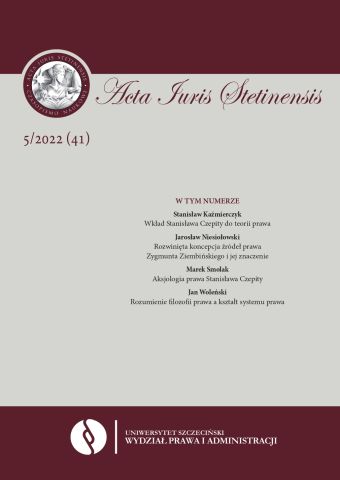







| Authors: |
Dariusz
Kowalski

SWPS Uniwersytet Humanistycznospołeczny |
| Keywords: | functional interpretation interpretation of public economic law the Entrepreneurs’ Law Act |
| Data publikacji całości: | 2022 |
| Page range: | 12 (37-48) |
| Downloads ?: | 71 |
| 1. | Chauvin T., Stawecki T., Winczorek P., Wstęp do prawoznawstwa, Warszawa 2019. |
| 2. | Hauser R., Niewiadomski Z., Wróbel A., System Prawa Administracyjnego, Publiczne prawo gospodarcze, t. 8 A, Warszawa 2018. |
| 3. | Kieres L., Publiczne Prawo Gospodarcze – kierunki rozwoju – nowe instytucje, w: J. Boć, A. Chajbowicz (red.), Nowe problemy badawcze w teorii prawa administracyjnego, Warszawa 2009. |
| 4. | Kowalski D., Prawo gospodarcze publiczne – aktualne problemy i wyzwania na przykładach cyfryzacji i robotyzacji, D. Jagiełło, S. Kursa, F. Parente (red.), Wpływ informatyzacji na system prawa. Wybrane zagadnienia, Warszawa 2021. |
| 5. | Morawski L., Wstęp do prawoznawstwa, Toruń 2000. |
| 6. | Leszczyński L., Wykładnia prawa, odmienności w wybranych gałęziach prawa, Lublin 2006. |
| 7. | Skowrońska A., Tarnawa A., Raport o stanie sektora małych i średnich przedsiębiorstw w Polsce, Warszawa 2021. |
| 8. | Spyra T., Granice wykładni prawa, Kraków 2006. |
| 9. | Strzyczkowski K., Prawo gospodarcze publiczne, Warszawa 2011. |
| 10. | Żuławska C., Co to jest prawo gospodarcze?, „Ruch Prawniczy, Ekonomiczny i Socjologiczny” 1993, nr 1. |